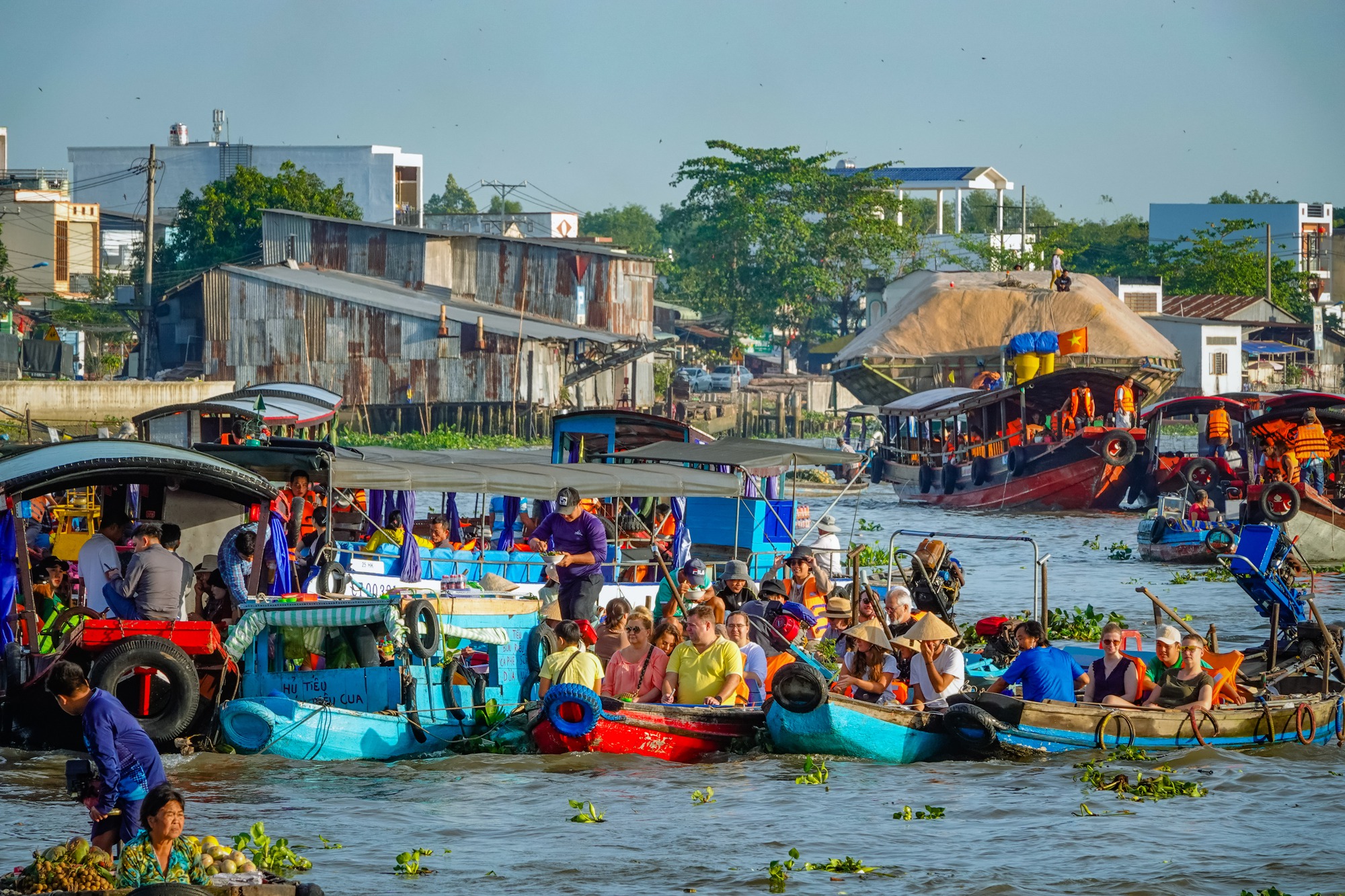Can Tho, a city in the Mekong Delta, is promoting agricultural and rural tourism in order to increase the value of rural tourism and improve the lives of rural residents in a sustainable way.
TABLE OF CONTENTS
1
1. Can Tho is promoting agricultural and rural tourist development
2
2. Targets
Can Tho, a city in the Mekong Delta, is promoting agricultural and rural tourism in order to increase the value of rural tourism and improve the lives of rural residents in a sustainable way.

1. Can Tho is promoting agricultural and rural tourist development
Rural areas in Can Tho account for more than 60% of its total area, the city has inherent advantages for growing agricultural and rural tourism, particularly river-related tourism.
It has 158 rivers and canals, including the Hau River, a Mekong River tributary. The Hau River runs through the city for 65 kilometers.
Many places in the city provide tourism services in fruit orchards, including My Khanh tourism village in Phong Dien District, Son riverine island in Binh Thuy District, and Tan Loc riverine island in Thot Not District.
Many people have successfully established a model of breeding fish in floating cages in the Hau River alongside tourism activities. They produce varieties of fish and decorate their floating cages with flower pots, coconut-leaf roofs, and miniature plastic-bottle boats to serve tourists snapping photos. They receive approximately 7,000 tourists every year and employ 40 locals.
Previously, many farmers on the island were concerned that tourists could harm their fish and fruit trees, but that is no longer the case. Tourists buy fruit after visiting, and farmers earn extra money by selling these items directly to tourists and providing tourism services.
According to Dao Thi Thanh Thuy, deputy director of the city Department of Culture, Sports, and Tourism, numerous farmers in the districts of Phong Dien, Cai Rang, Binh Thuy, and Thot Not have offered tourism services in their fruit orchards. She claims that the growth of agricultural and rural tourism has increased farmer income and improved rural infrastructure.
The city welcomed more than 1.5 million tourists in the first quarter of this year, up 76% from the same period last year, and the majority of the tourists chose to visit ecological and agricultural tourism areas, as well as floating markets.
2. Targets
Can Tho aims to have half of its agricultural and rural tourism activities satisfy tourist service standards by 2025. It also intends to provide professional skills to 70% of persons working in agricultural and rural tourism areas by 2025.
To fulfill the targets, the city will concentrate on developing tourism products that are of high quality, diverse, and meet the needs of tourists:
Help tourism lodging operators enhance their facilities in order to promote tourism quality and safeguard the environment.
Protect and develop food-producing villages and agricultural output, as well as support artisans in expanding their production.
Concentrate on training tour guides who are well-versed in the city's culture and agriculture and can speak foreign languages.
Give professional skills training courses to orchard owners in order to strengthen their ability for managing and developing fruit orchards that offer tourism services.
In 2025, it is expected to welcome 1.3 million tourists visiting agricultural and rural tourism sites. For more details of similar tour packages including Mekong delta, please contact Threeland sales team for more recommendations.
Read more:
Check Tips on finding the Best tours to Mekong Delta in Vietnam
Mekong Delta Cruise Tour | How to find and plan your best tour from Ho Chi Minh










